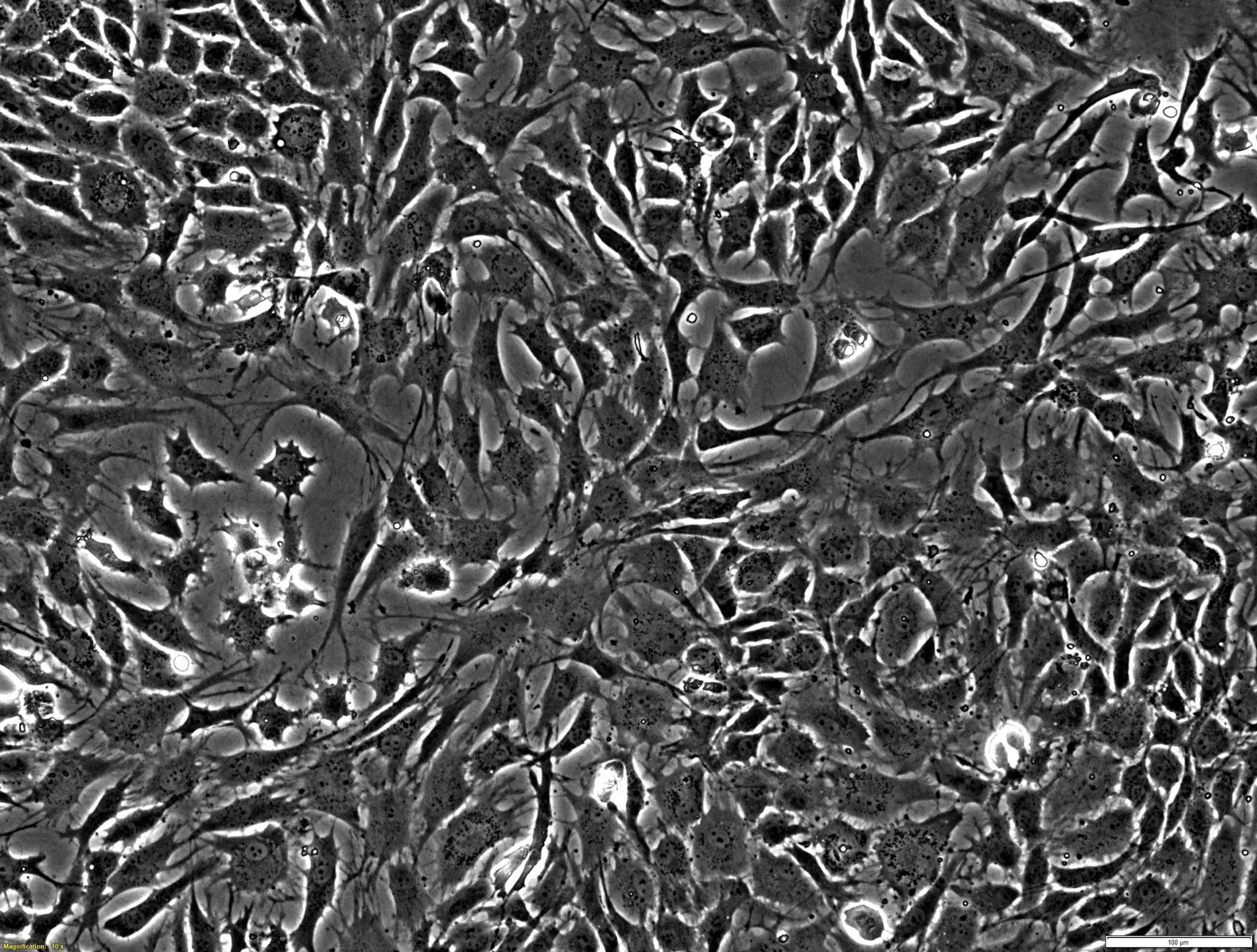CELLvo™ ChondroMatrix: Furthering Research in Cell-Based Joint Replacement Therapies
A Conversation with Dr. Justin Parreno, University of Delaware
Articular cartilage is the elastic tissue that covers the end of a bone at its joint; it provides cushioning and allows for frictionless motion between bones. Unfortunately, articular cartilage is prone to damage, either through injury or age- and usage-based degeneration. This damage progresses over time, eventually leading to osteoarthritis of the joint.
To repair extensive articular cartilage damage, patients will typically undergo a total joint replacement procedure using implants made of metal, plastics or ceramics. These replacements generally last only 10 to 15 years, however; as a result, younger patients with cartilage injury who undergo total joint replacement are effectively committing to three to four similar procedures in the span of their lifetimes.
A more encouraging alternative for younger patients, therefore, is cell-based therapy. Dr. Justin Parreno is Assistant Professor in Biological Sciences and Biomedical Engineering at the University of Delaware; he also heads a team of researchers studying articular cartilage regulation with the goal of improving cell-based joint replacement therapies including Autologous Chondrocyte Implantation (ACI). In the ACI technique, a surgeon extracts a small piece of cartilage from a non-load bearing region of the joint and expands those cells in a lab. Once a large number of cells have formed, they are reimplanted into the patient’s joint; the cells then restimulate to form new cartilage and repair the joint. While ACI is promising in theory, Dr. Parreno notes that it does not always function successfully in practice, because chondrocytes tend to lose their phenotype in culture. “A lot of times, these cells change their behavior,” he says. “Instead of producing cartilage matrix, they produce what we call fibroblastic matrix - like skin, for instance, which is meant to withstand stretching forces. Not the hard impact that cartilage can withstand. So the tissue that’s regenerated is… not as good as we think we can make it.”
StemBioSys’ CELLvo™ ChondroMatrix is designed to address and help correct this issue of cell dedifferentiation. ChondroMatrix is a cell free, in vitro extracellular matrix (ECM) composed of proteins synthesized by human articular chondrocytes, thus providing a native microenvironment in which these cells can rapidly expand. Crucially, ChondroMatrix also aids in improving the quality of the expanded cells.
To test its efficacy, Stephanie Richardson-Solorzano, a PhD student in Dr. Parreno’s team, placed CELLvo™ human chondrocytes from StemBioSys onto hard plastic with the necessary nutrients for them to proliferate. Once the cells had expanded to a suitable number, Richardson-Solorzano seeded them on the ChondroMatrix.
The results of this experiment were noteworthy in two respects. The first is with regard to cell growth; as Dr. Parreno explains, one of the hindrances to clinical application is the length of time it takes for in vitro cells to expand. With ChondroMatrix, however, “they grow so fast - tremendously fast; we can speed up that [growth] process.” He estimates that cell growth with ChondroMatrix takes about two-thirds of the time, as compared with expansion in other environments.
Additionally, cells grown on the ChondroMatrix start to express the molecules that they should be expressing, a departure from traditional chondrocyte expansion. Dr. Parreno elaborates: “Collagen Type II is the type of collagen that you find in your cartilage; Collagen Type I is not - it’s typically found in skin or other tissue. [So] Collagen Type II is what we’re really interested in. But when you take cells from the joint and expand the cell numbers, the cells stop producing Type II Collagen and start producing Type I.”
ChondroMatrix-grown cells, on the other hand, promote the chondrocyte phenotype. “What we found is that if you take cells and expose them in this ChondroMatrix environment, the cells begin to elevate expression for Collagen Type II.”
Flexible, convenient to use and effective, CELLvo™ ChondroMatrix has the potential to accelerate meaningful advancements in the study of cell-based articular cartilage therapy.
Located in San Antonio, TX, StemBioSys develops cell culture technologies licensed from The University of Texas Health Science Center, San Antonio. Our work represents the next evolution in stem cell research. For more information about StemBioSys and our patented technology, please contact us.

